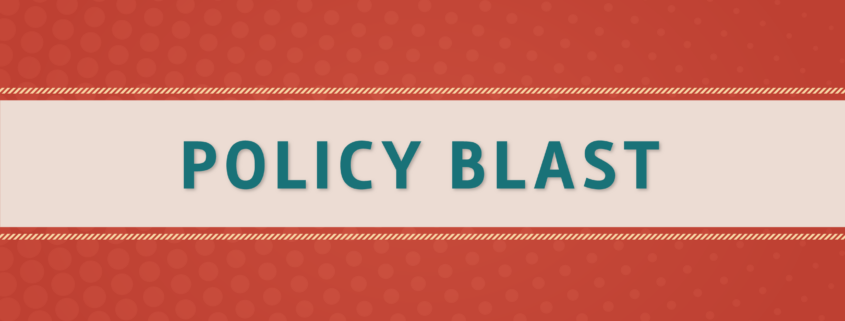NCUIH-Endorsed Comprehensive Addiction Resources Emergency (CARE) Act Includes Funding for Urban Indian Organizations
On December 16, 2021, Senator Warren (D-MA) and Representative Maloney (D-NY) reintroduced the Comprehensive Addiction Resources Emergency (CARE) Act (S. 3418/H.R. 6311). The CARE Act addresses the substance use epidemic by providing state and local governments with $125 billion in federal funding over ten years, Of the nearly $1 billion, the CARE Act sets aside $150 million a year in funding to Native non-profits and clinics, including to urban Indian organizations, Native Hawaiian organizations, and projects designed to test innovative service delivery and culturally informed care models to tackle addiction.
NCUIH worked closely with Congressional leaders to ensure the inclusion of urban Indians in this important legislative response to the Nation’s substance use epidemic and is pleased to endorse this bill. The bill was originally introduced in 2018 and is currently endorsed by over 175 national, local, and tribal organizations. In the Senate it was referred to the Committee on Health, Education, Labor, and Pensions. In the House it was referred to the Committee on Energy and Commerce, in addition to the Committees on Natural Resources, the Judiciary, and Oversight and Reform. It currently awaits further consideration.
“Many times, critical funding, even when appropriated in equitable amounts, does not reach across AI/AN urban communities, largely in part because when urban Indians are not specifically mentioned in legislative language they are most often excluded or forced to prove their eligibility under the intent of the laws created. NCUIH appreciates that the CARE Act has detailed specific language that ensures urban Indian organizations are listed as an eligible entity in this important legislative act,” wrote Francys Crevier (Algonquin), CEO of the National Council of Urban Indian Health (NCUIH).
Additional Information about the CARE Act
Additional funds from the $1 billion include $790 million per year for grants to Tribal governments to help fight this crisis and invest in substance use prevention and treatment; $7.5 million in additional funding for Tribal nations and regional tribal epidemiology centers to improve data collection on overdoses; and 50 million a year to Tribal Colleges and Universities, Indian Health Service-funded organizations, and medical training programs that partner with Tribal nations and Tribal organizations to train Native health professionals to improve substance use disorder treatment services. This Act also provides $1 billion per year to expand access to the overdose reversal drug, Naloxone, to states to distribute to Tribal nations, first responders, public health departments, and the public.
Background
to the Indian Health Service, the opioid crisis and COVID-19 pandemic are intersecting with each other and presenting unprecedented challenges for American Indian and Alaskan Native (AI/AN) families and communities. Because of the pandemic, substance and opioid use and fatalities have significantly increased in low-income communities.
AI/ANs continue to be deeply impacted by the opioid crisis and continue to see an overwhelming increase of deaths, addiction, and overdoses above the National average. AI/ANs had the second-highest rate of opioid overdose out of all U.S. racial and ethnic groups in 2017, and the second and third highest overdose death rates from heroin and synthetic opioids, respectively, according to the Centers for Disease Control and Prevention.
Since 1974, AI/AN adolescents have consistently had the highest substance abuse rates than any other racial or ethnic group in the U.S. Staggering statistics such as these do not happen overnight, they are the direct result of intergenerational trauma caused by adverse childhood experiences such as alcoholism, drug abuse and domestic violence in a family, emotional neglect, incarceration of a family member, and physical or sexual abuse— which are known to lead to a higher risk of addiction and other behavioral and mental health problems later in life.
Unfortunately, the majority of the nation’s AI/ANs living on and off reservations have limited access to substance abuse services due to transportation issues, lack of health insurance, poverty, inadequate healthcare facilities and a shortage of appropriate treatment options in their communities. Some of the disparities in treatment that occur within the AI/AN population can be resolved through increased availability of culturally sensitive treatment programs. Studies have shown that cultural identity and spirituality are important issues for AI/ANs seeking help for substance abuse, and these individuals may experience better outcomes when traditional healing approaches (such as powwows, drum circles, and sweat lodges) are incorporated into treatment programs.





Leave a Reply
Want to join the discussion?Feel free to contribute!